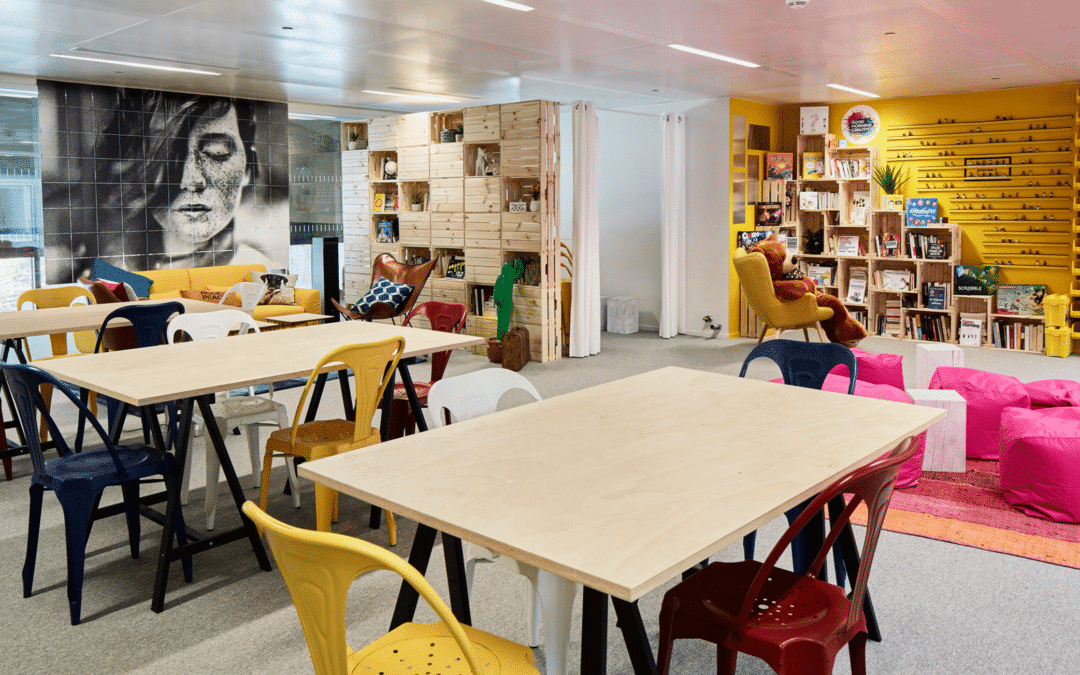Employee experience: definition and importance
The definition of the employee experience can vary depending on a company’s objectives. However, most experts agree to define it as all the interactions and experiences lived by an employee within the company, in the key moments of his career. According to Oracle, “it’s an orchestrated set of experiences and considerations that a company puts in place to improve the professional and personal lives of its people, as well as their overall productivity”.
A number of studies have shown that the employee experience influences employee commitment within companies. This is what the results of Gallup’ s recent meta-analysis show: they indicate that, despite massive changes in the economy and technology, engaged employees produce better business results than other employees, regardless of industry, company size or nationality, and regardless of whether the economic situation is good or bad.
In the digital age, a high-performance HRIS tool can improve the employee experience through talent attraction, employee loyalty and commitment, symmetry of attention, employee career paths, corporate culture, onboarding and offboarding. This contribution of digital technology to improving the employee experience is an important factor to be taken into account by all stakeholders involved in this subject.
The different perceptions between HR and employees on the employee experience
According to an Oracle study titled “The State of Human Experience in the Workplace 2022,” HR professionals and employees often have a different view of the employee experience on several levels. To illustrate these differences in perception, we have selected 3 important areas for you to consider: responsibility in the employee experience, telecommuting, and improving the employee experience over time.
First, when it comes to employee responsibility for the employee experience, the majority of HR professionals (58%) say that employees have a high or very high degree of responsibility for their own work experiences, while only 47% of employees say the same.
Second, HR professionals have a considerably more positive view of remote and/or hybrid work arrangements than employees. In fact, employees are twice as likely as HR professionals to say that remote and hybrid work arrangements have had a negative impact on the employee experience.
Finally, most HR professionals believe that the employee experience will improve over the next year, while employees are more skeptical. More than 72% of HR professionals agree or strongly agree that the employee experience will improve over the next year, compared to only 38% of employees.
So why do we see these perception gaps between HR and employees?
There are several reasons for the differences in perception between HR professionals and employees.
First, HR professionals seem to be more positive about the employee experience because they are better informed about projects to improve it. They are the ambassadors of HR projects and therefore have a position to adopt with respect to the employee, considered as a customer in many companies.
Second, this perception gap is also due to the fact that employees increasingly have a better view of what is happening in other companies in terms of employee experience. This gives them more to compare with when assessing their own experiences.
Thirdly, the gap between the employer’s promise and the employees’ experience in many companies can be highlighted. Some promises, such as quality of life at work, evaporate just after onboarding. Many companies find it difficult to balance the economic growth of the company with the well-being of their employees.
In conclusion, in order to align the perceptions on the employee experience between HR and employees, the actions to improve the candidate experience must be built by both parties. HR professionals need to implement more tools (workshops, surveys, etc.) to involve employees in all projects that impact the employee experience, from the collection of needs to the implementation of actions.
What tools can you use to manage your HR strategy?
Optimize your HR strategy and discover the essential management tools you need to achieve your objectives. Don't miss this opportunity to successfully manage your HR projects.
See also our feature on "HR strategy management tools".
- What are the key issues facing HR departments today?
- Organization, talent management, recruitment: priority HR projects?
- Human resources management: what HR strategies for the future?
- Best practices to manage your HR strategy in an optimal way
- The different HR management tools to carry out your HR strategy
- HRIS software: the different areas of intervention for the HR function
- How to convince your management to invest in an HRIS tool?
- Is it necessary to be accompanied in the management of an HR strategy?
- What indicators should be defined to measure the performance of an HR strategy?
- HR strategy: how to achieve effective HR reporting?
- Who should drive HR projects in the company?
- Setting up a working group for an HR project: who should be involved?
Contact
A project? A request?A question?
Contact us today and find out how we can work together to make your company’s digital future a reality.













